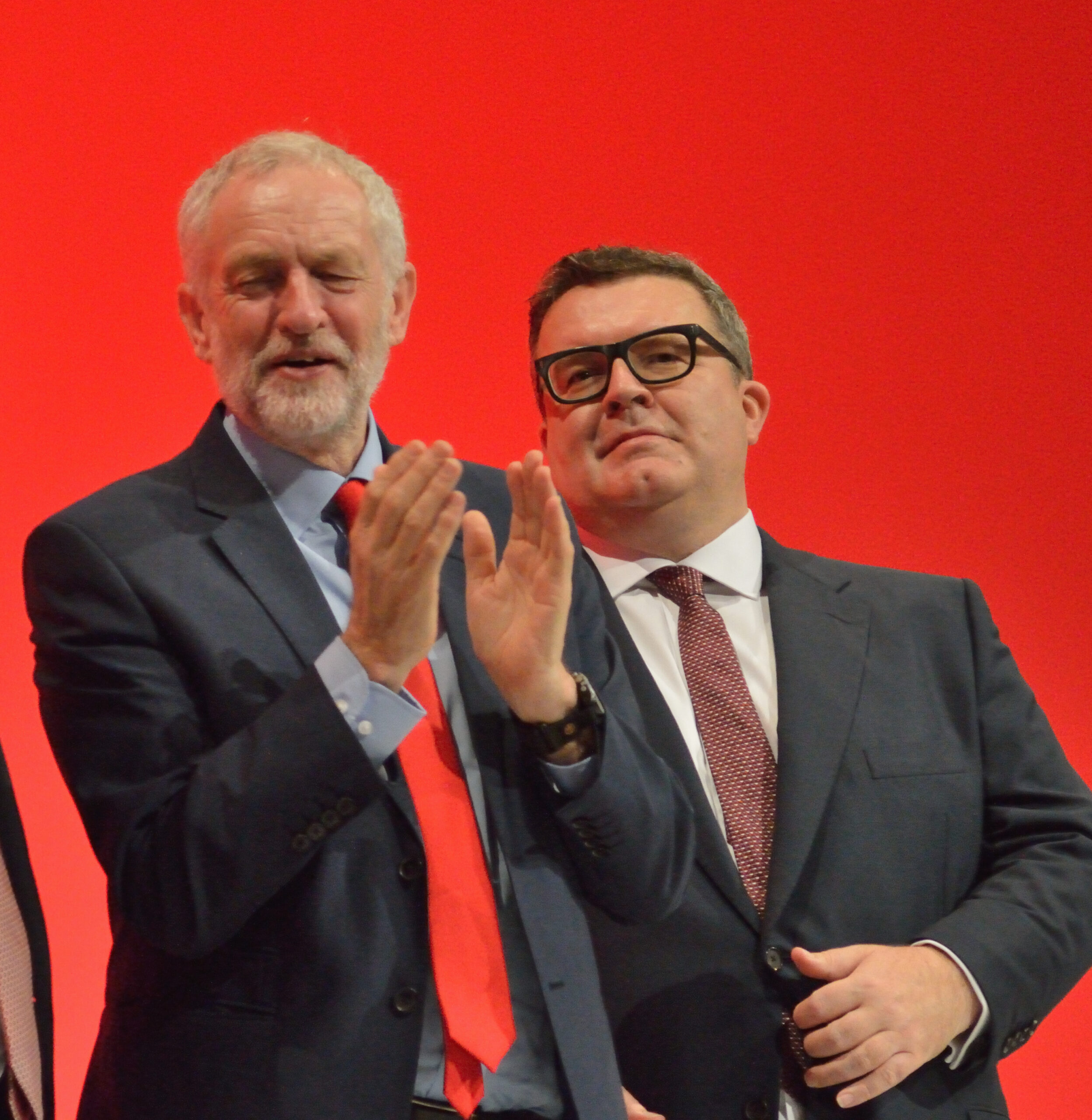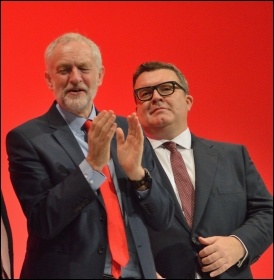- Editorial of the Socialist issue 1064
Attacks show elite fear a Corbyn election win
A study into the press coverage of Jeremy Corbyn in 2015 by the London School of Economics media department has found, unsurprisingly, that is was overwhelmingly biased against him. Of all the articles in the capitalist press about his policies, 52% did not contain his views on the topic at all, while another 22% included them only to misrepresent them. Only 11% of articles actually reported what he thought. While the right-wing tabloid press were the worst offenders every capitalist newspaper was guilty.
A similar study today would show that the situation is even worse, with increasingly frenzied attacks on Corbyn. Nor are the TV companies – whether privately-owned or the state-run BBC – qualitatively different.
It is not coincidence that the attacks on Corbyn have been stepped up. It is part of a campaign by the capitalist class – the 0.1% – to try and ensure he doesn’t win the general election. Criminally, the campaign is being spearheaded by Labour and ex-Labour figures. The most blatant, like ex-Labour MP Ian Austin, have called for a vote for the Tory toff Johnson.
Determined
Those who are still in the Labour Party are generally slightly more subtle, but just as determined to undermine Corbyn. Blairite ‘grandee’ David Blunkett launched a blatant attempt to sabotage Corbyn’s election campaign when he told the Observer that he is in “despair” over the “anti-Semitism” and “thuggery” in the Labour Party and that the chances of Labour winning a majority government are “extraordinarily slim”.
Socialists are totally opposed to antisemitism. Clearly action should be taken against any cases of antisemitism in the workers’ movement.
However, the claims of Blunkett and his ilk that antisemitism has become rife in Labour under Corbyn are not true. Even the House of Commons Home Affairs Committee, dominated by Tories and anti-Corbyn Labour MPs, in its 2016/2017 report on anti-Semitism in the UK had to admit that, “the majority of antisemitic abuse and crime” is “committed by individuals associated with (or motivated by) far-right wing parties and political activity.”
They went on to say that “around three-quarters” of all “politically-motivated antisemitic incidents come from far-right sources.”
Does this barrage of abuse and lies raining down on Corbyn make it impossible for him to win a general election? No! Corbyn could win a majority provided that he stands on a clear socialist programme – putting forward policies in the interests of the working class majority – and sets out to mobilise the workers’ movement to argue his case.
There are already many reports of right-wing led Labour Party constituencies refusing to mention Corbyn or his policies in their election leaflets. Corbyn needs to make an appeal over the heads of the Blairite saboteurs, starting with mass rallies as was done in 2017, and including organising in support of workers planning or taking strike action now, like the university and postal workers.
Winning a general election would only be the beginning, however. Tony Blair has issued a call to support “moderate” MPs of all parties because, “after this election, the real battle over the future of British politics will begin.” He is campaigning to form an ‘establishment alliance’ in parliament designed to prevent the introduction of socialist policies.
Unfortunately, the failure of the left Labour leadership to transform Labour into a workers’ party means there are still many MPs he can rely on. More than 100 of the Labour candidates standing took part in previous attempted coups against Corbyn.
The workers’ movement, therefore, has to fight for the election of a Corbyn-led government with socialist policies. But it must also prepare for a mighty battle against pro-capitalist politicians, not least those currently in the Labour Party, for the implementation of those policies.








